Tourists, Bears, and Not a Poet in Sight
Summertime in British Columbia’s Fraser Valley
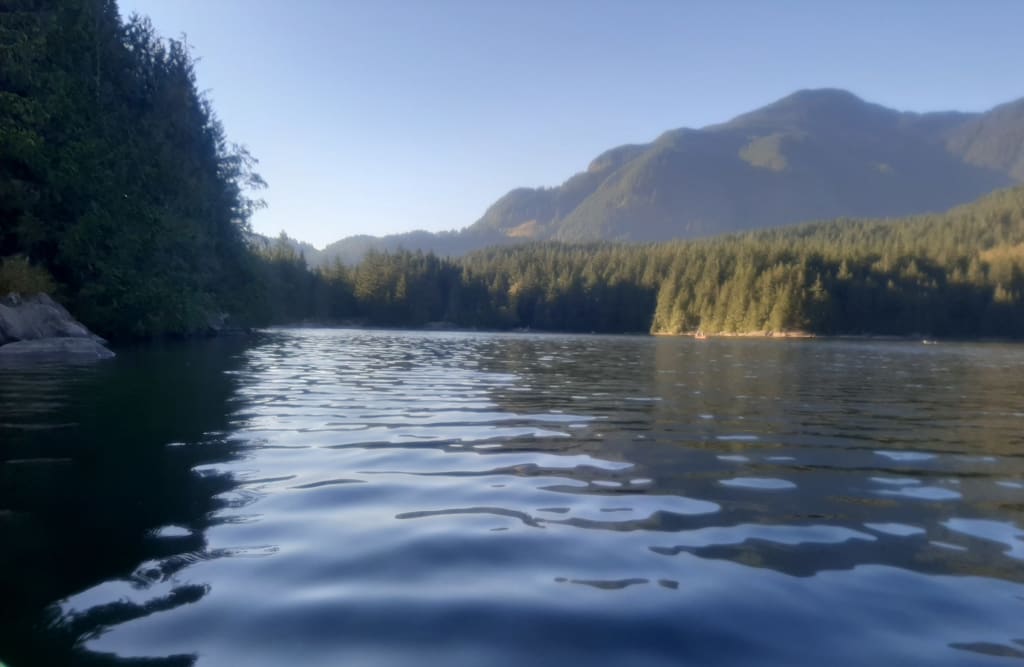
From the weather-swollen planks of the picnic table, I watch them come up from the lake.
Sometimes alone. More usually in groups. Young couples give way to young families, followed by squawking teenagers. At the back, old people cling to one another, taking their time on the slow rise to the car park.
Everyone is carrying something, weighed down like the ghosts of the pack mules that died in these hills a hundred years ago and more. Plastic floaties in the shape of food. Kayaks and canoes. An air mattress with one corner dragging on the ground. Trundling wagons and rattling strollers. It takes a lot of money to have this much fun.
There are plenty of lakes around here. Five minutes drive from Hicks, there’s Deer, smaller and quieter than its more popular sister. Deeper in the trackless forest, there’s Moss and Slollicum and Lookout and a thousand others without names.
At the bottom of the road, there’s the brooding ice-cold water of Harrison Lake, surrounded by mountains and one thousand feet deep. In fall, seals swim upriver from the far-off sea, chasing the swarming salmon into Harrison Lake before riding the current, full-bellied and lazy, 100 km back to the Pacific.
It’s a holiday atmosphere, and seemingly devoid of poets. In their absence, I’ll have to do.
We like to be near the water.
In the chattering hell of our primate brains, the presence of water tells us our first and most pressing need is met. We can see to many of the rest ourselves.
We drag picnic baskets and spouses and kids from the gravel car park and its drifting dust to the rocky beaches sliding into the lake. People come to see what they can’t see at home. The half-civilized edge of the wilderness, vast and unconquered. The paint still drying on the universe.
But the mismatched detritus scattered among the rain-stained picnic tables is all the reminder you need that wherever we go, we bring the world with us.
The lakes have been here since the glaciers carved them out of the mountains. The Ice Age has a lot to answer for. In one of those instances of unfolding meaninglessness that characterize exactly this kind of world, people come 10,000 years later to play in the wreckage the glaciers made.
Some people fish. Some paddle boats around the lake, not going anywhere in particular. Some swim, scowling as they lift their heads clear of the water, limbs flashing and vanishing in a coronet of bubbles while they struggle against the lazy current.
The air sings with the sound of watercraft being inflated, the sweaty labors of summer dads devoted to giving the kids something new to play with.
We all love the lake. It does its best to be lovable. The trouble is that these places are at their best when they are abandoned.
Noon at the lake is all about fun. The air drips with music. The sun dances back from the waves. But come here early in the morning, or late in the evening, and you’ll be virtually alone. All by yourself with a beauty all the more precious for being unseen.
Mist rises from the water in the morning, turning the lake into a steaming bowl. Unmolested by ambitious children, geese and ducks glide along the glassy surface. The trees whisper as the wind wakes them up gently, one by one. In the morning, the world holds its breath.
And in the evening, the families go home for dinner. The young couples tire of sunscreen and sunburn and go home to have sex. Old people wander bedwards under protective hats. Before sunset, the water turns back into the mirror the morning made it, and nature reclaims its creation. The cool clear lake is left to insects and evaporation and the sweeping patterns of reflected birds.
Nothing is more evocative of the wilderness than the presence of large animals. And when the sun sinks and the crowd thins out, the life that lives in the forest becomes more noticeable.
Inlow light, every shadowy tree stump looks like it could be something. But when I saw the bear by the side of the road, I knew at once what it was. Nothing else is that black.
I slowed the car to a crawl, but the bear heard me coming. Without turning her head, she plunged at once into the tattered bushes at the side of the road. I watched her scramble up the bank by the roadside, her broad paws kicking up clouds of dust as she bounded up the slope into the deeper forest beyond.
In the mythology of the Sto:Lo First Nation, Black Bear was married to Red Headed Woodpecker.
But when Woodpecker was killed by his other wife, Grizzly Bear, Black Bear and her four children were left all alone. To compensate, her children received special powers. They were able to shapeshift and transform other creatures according to their behavior. So from Harrison Lake, the children of Black Bear set out to the West, handing out punishment and reward along the way.
Generous people were transformed into life-giving creatures such as the sturgeon, the beaver, and the cedar tree. The selfish and immoral were transformed into unyielding stone.
After the best part of two decades in Western Canada, it’s still magical to me to see a bear in the forest. You’d have to be made of stone not to feel it. It really does transform you.
A reminder that the world is not ours to do with as we please. That we are just a part of the grand symphony, that life goes on all around us all the time, seen or unseen. While we delude ourselves with a sense of our own importance, life moves through us all like wind through the trees and vanishes over the unruffled surface of the lake.
The world ends here. On the other side of the water, the forest is untouched. An impenetrable maze of tangled brambles and lurking predators, a growling darkness that resents and resists. Of course, that’s what makes it so appealing. Which of us can ignore the deep pull of the things we’re not meant to have?
But that far forest will have to wait. Let it keep its secrets for another day. The long shadows of mountains are darkening the water, and soon, a fractured moon will shine in the tops of glittering wavelets.
I won’t see them. Not tonight. There are no poets here, and even dilettantes have places to be.
About the Creator
Ryan Frawley
Towers, Temples, Palaces: Essays From Europe out now!
Novelist, entomologist and cat owner. Ryan Frawley is the author of many articles and stories and one novel, Scar, available from online bookstores everywhere.

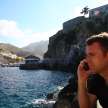
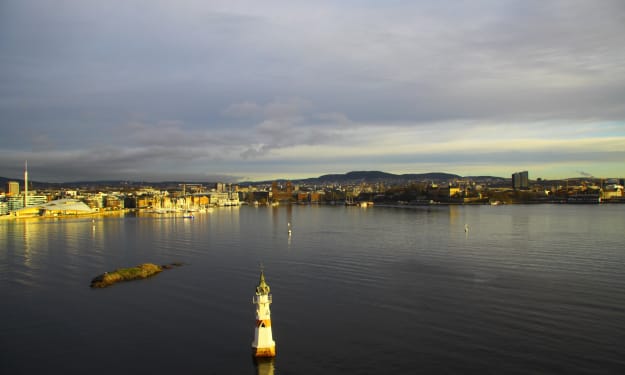
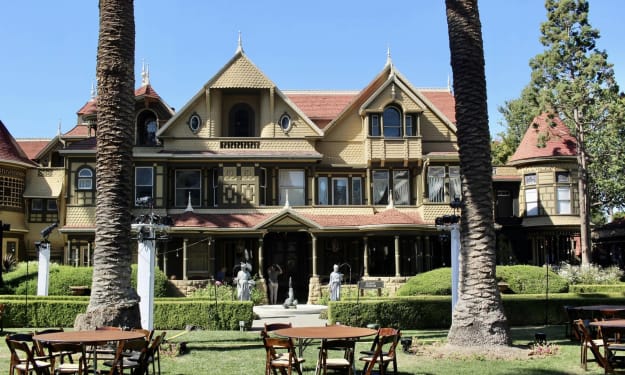
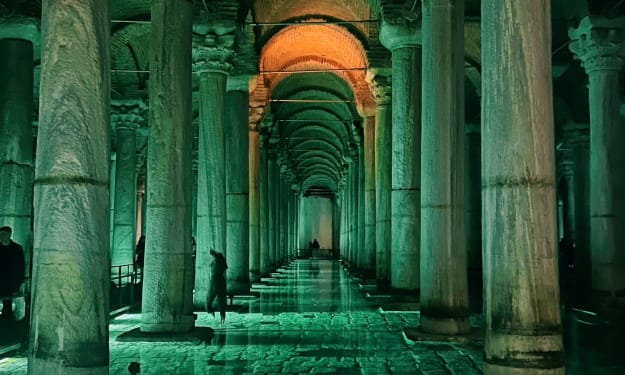

Comments
There are no comments for this story
Be the first to respond and start the conversation.